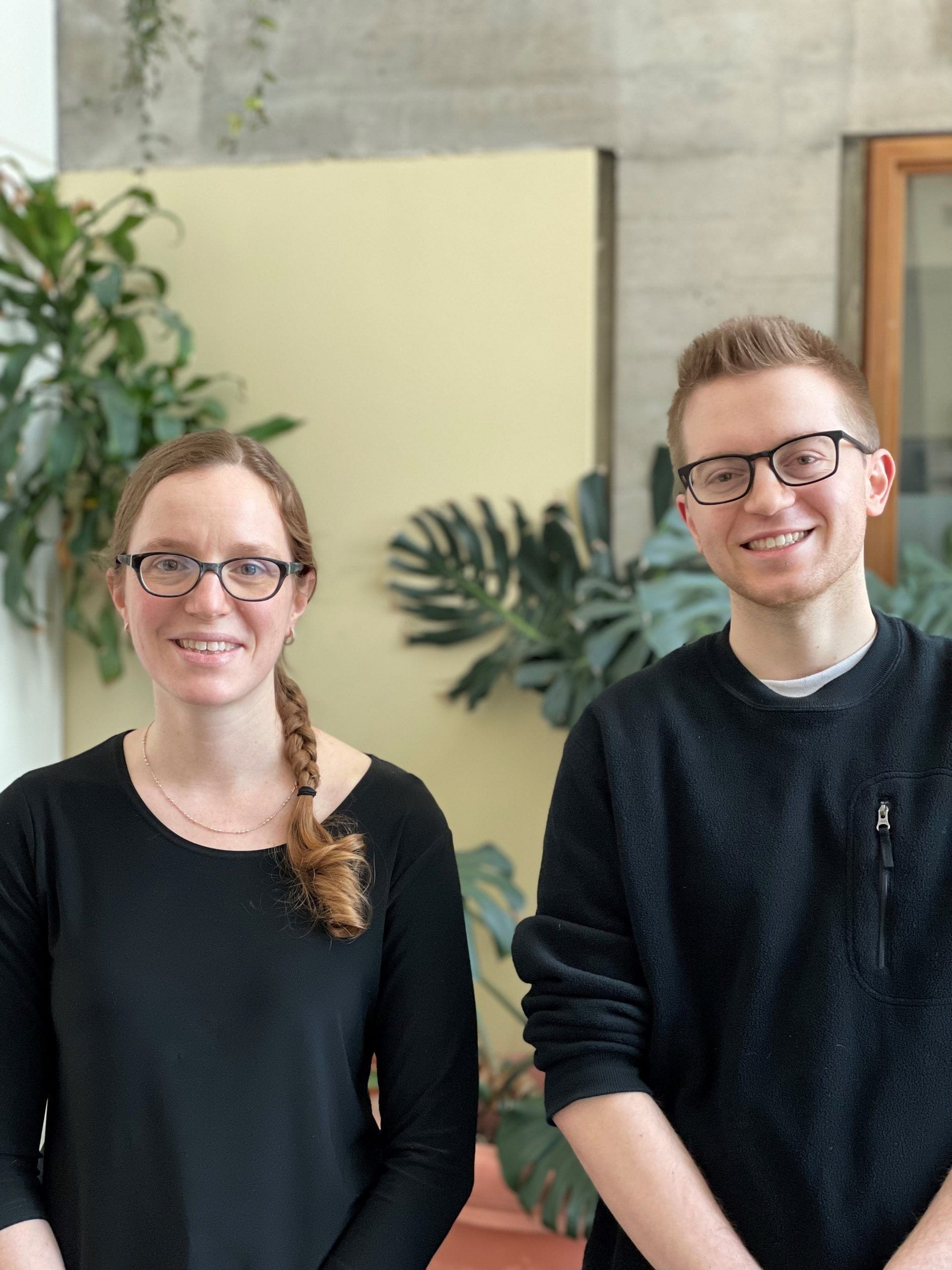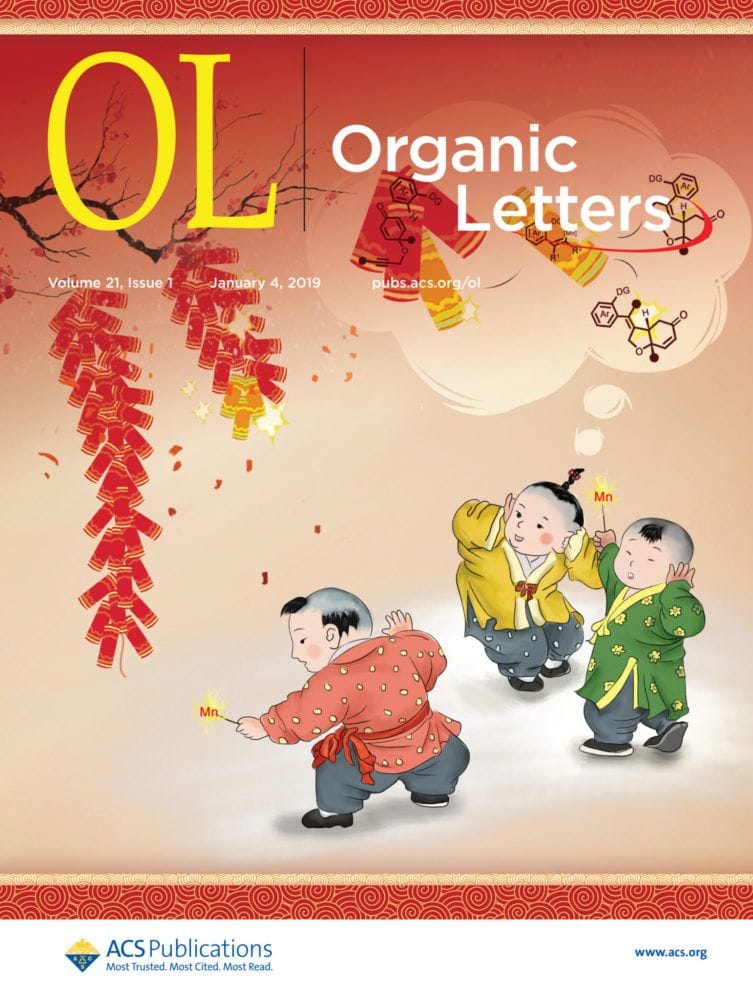Co-sponsored by the ACS Division of Organic Chemistry and Organic Letters, this annual award recognizes the authors of an outstanding Letter published in the journal in the previous calendar year. The Letter is selected based on its creativity and impact in the field. This year the award goes to the research group of Sophie A.L. Rousseaux at the University of Toronto.

Co-sponsored by the ACS Division of Organic Chemistry and Organic Letters, this annual award recognizes the authors of an outstanding Letter published in the journal in the previous calendar year. The Letter is selected based on its creativity and impact in the field. This year the award goes to the research group of Sophie A.L. Rousseaux at the University of Toronto.
Meet the Recipients
John J. Monteith and Sophie A. L. Rousseaux are recognized this year for their article, Ni-Catalyzed C(sp3)–O Arylation of α-Hydroxy Esters, which uses innovative synthetic methodologies for preparing compounds of importance in the development of analgesic and nonsteroidal anti-inflammatory drugs.

Sophie Rousseaux obtained a B.Sc. in Biopharmaceutical Sciences – Medicinal Chemistry from the University of Ottawa in 2007. As an undergraduate student, she worked with Prof. Keith Fagnou on the direct arylation of pyridine N-oxides and decarboxylative ketone aldol reactions. She remained in the Fagnou group for the start of her graduate studies, working on palladium-catalyzed aliphatic C–H bond functionalization reactions. In 2010, she moved to MIT to complete her graduate research with Prof. Stephen L. Buchwald, working on Pd-catalyzed dearomatization reactions.
In 2012, she moved to the University of Oxford to work with Prof. Harry L. Anderson on the self-assembly of porphyrin nanorings as an NSERC postdoctoral fellow and Glasstone Research Fellow. During her time at Oxford, Rousseaux also held a Junior Research Fellow at St John’s College (2012–2015) and was a Stipendiary Lecturer in Organic Chemistry at Jesus College (2014).
In July 2015, Rousseaux returned to Canada to join the Department of Chemistry at the University of Toronto as an Assistant Professor. She holds a Canada Research Chair (Tier 2) in Organic Chemistry since 2016. Her group’s research interests include organic synthesis, catalysis, and organometallic chemistry, with a particular focus on the synthesis of small rings and nitrile-containing molecules. Selected recent awards for her team’s work include a Sloan Research Fellowship (2021), an Ontario Early Researcher Award (2021), and the Dorothy Shoichet Women Faculty Science Award of Excellence (2020).
Learn more about the group by reading the highlights from an interview with Sophie A.L. Rousseaux.
What does it mean to you to be the recipient of this award?
I am incredibly honored to be the recipient of the Organic Letters Outstanding Publication of the Year Award. There are so many outstanding papers that appear in Organic Letters every year. It is wonderful that the hard work of lead author John Monteith is being recognized this way.
What prompted you to study this field of chemistry?
Personally, I have had a long-standing fascination for the development of synthetic methods where strong bonds are cleaved in the presence of transition metals. This has translated to my independent career; my group is interested in developing new transformations where strong C–O or C–C bonds are cleaved. Since alcohols are prevalent in chemical feedstocks, we have been particularly excited about harnessing the redox-activity of low-valent electron-rich Ni complexes to facilitate C–O functionalizations. In this context, we have designed new redox-active leaving groups for the arylation of C(sp3)–O electrophiles. Inspired by the Barton-McCombie deoxygenation reaction, we have shown that thiocarbonyl-containing leaving groups (e.g. O-thiocarbamates) are convenient and efficient redox-active leaving groups for nickel catalysis.
What are some of the important applications that you are working on that will benefit society?
It has become increasingly clear that sustainable chemical processes are required to address the environmental challenges that we face as a society. My research group aims to develop synthetic methods to access medicinally relevant small molecules in a more efficient (e.g., less waste, fewer steps) and/or safer (e.g., nontoxic reagents/waste) manner. These methods could potentially impact the way pharmaceuticals or agrochemicals are made.
Tell us about your research philosophy.
While efficiency and sustainability are central themes in my research program, we are also particularly driven to develop reactions that we believe will be of interest to the synthetic community, either because they provide a new way to access a valuable motif or because they provide new mechanistic insight. As a result, my group’s approach to method development relies heavily on mechanistic studies to design improved catalysts and reaction conditions, which in turn leads to broader reaction scopes and the discovery of new reactivity.
What’s next in your research?
We are continuing to explore the use of these thiocarbonyl-containing leaving groups in nickel catalysis. We believe that there is great potential in these reagents and look forward to sharing our future discoveries with the community.
Is there anything else that you would like to share?
I am incredibly proud to share this honor with graduate student coauthor John Monteith. I am also indebted to past and current groups members who have contributed to our understanding of this reactivity. They have also created such an amazing environment for research and I am fortunate to be leading this great team.
Explore Professor Rousseaux’s recently published articles in ACS Publications Journals.
